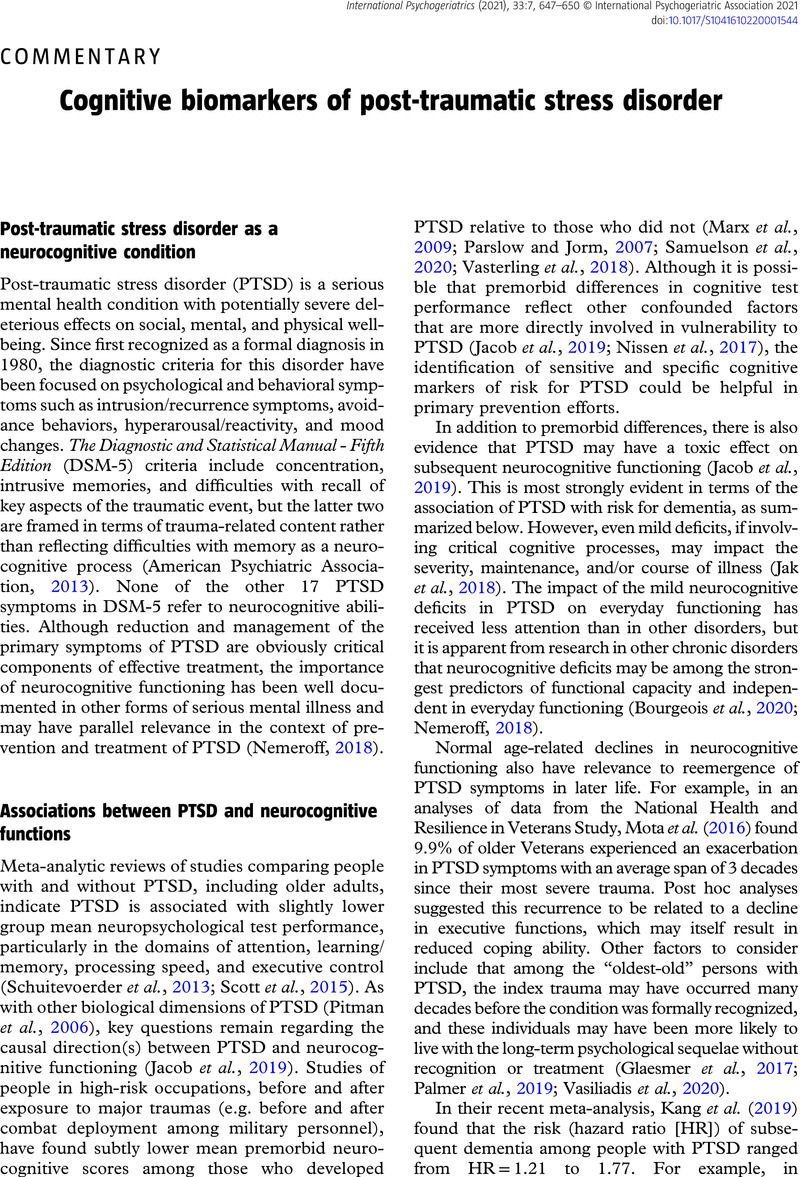Crossref Citations
This article has been cited by the following publications. This list is generated based on data provided by Crossref.
Cohn-Schwartz, E.
Hoffman, Y.
and
Shrira, A.
2024.
Reciprocal associations of posttraumatic stress symptoms and cognitive decline in community-dwelling older adults: The mediating role of depression.
International Psychogeriatrics,
Vol. 36,
Issue. 2,
p.
119.



